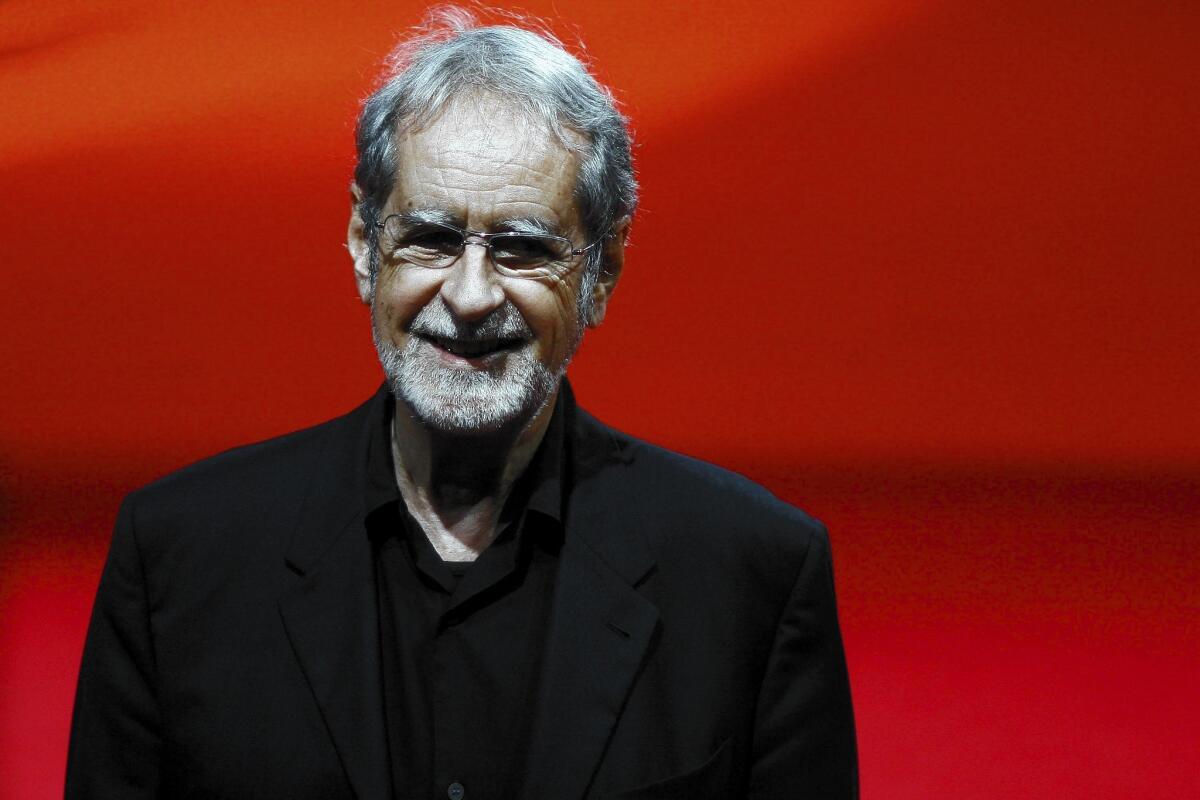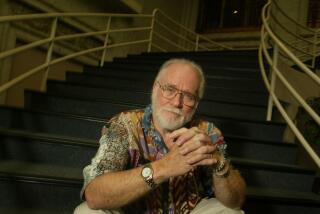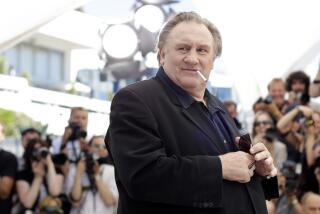Edouard Molinaro dies at 85; French director of ‘La Cage Aux Folles’

Edouard Molinaro, a French film director best known for his groundbreaking, gay-themed comedy “La Cage Aux Folles,” died Saturday at a Paris hospital. He was 85.
He had a pulmonary illness, according to French media.
Molinaro made more than 30 feature films, some with top French stars such as Catherine Deneuve, Brigitte Bardot and Jean-Paul Belmondo.
Although he was well established in France before “La Cage Aux Folles,” American audiences didn’t know much of him until his madcap tale of a gay couple and their drag nightclub — La Cage Aux Folles, or, the Cage of Crazies, on the French Riviera.
When the film came to the U.S. in 1979, singer Anita Bryant had become nationally known for her condemnation of homosexuality. A year earlier, San Francisco Supervisor Harvey Milk, who was gay, had been gunned down at City Hall. “La Cage,” though criticized in the gay press for its cliche drag queens, offered what was widely seen as a comic antidote to the venomous rhetoric of the day.
“The general public adored it,” said Laurence Senelick, a Tufts University professor who wrote “The Changing Room: Sex, Drag, and Theatre,” a history of cross-dressing on stage.
“Everything seemed fresh to them,” Senelick said in an interview for the Criterion Collection, which releases DVD editions of well-known films. “It was like watching a comic National Geographic special — a world they had no concept of whatsoever but could find points in which they could connect.”
That was Molinaro’s aim when he chose to make a movie version of French playwright Jean Poiret’s stage play, which ran for five years in Paris before the movie opened in France.
“To make a comedy enabled me to tackle the question in a non-racist way — so people would laugh with, not at, homosexuals,” he told the New York Times in 1981.
Born May 31, 1928, in Bordeaux, France, Molinaro made crime thrillers before turning to comedy. Among his successes were “La Chasse A L’Homme” and “Une Ravissante Idiote,” both released in 1964, and “Mon Oncle Benjamin,” from 1969.
In 1979, “La Cage Aux Folles” brought him an Oscar nomination for best director. It spawned a 1980 sequel — “La Cage Aux Folles II,” which Molinaro directed — as well as a Broadway musical, a number of revivals and the 1996 Mike Nichols film, “The Birdcage,” starring Robin Williams, Nathan Lane and Gene Hackman.
The story revolves around longtime partners Renato and Albin and a sudden visit to St. Tropez by Renato’s grown son, the product of a one-night fling with a showgirl. The son, it turns out, is announcing his engagement to a very nice girl — the daughter of a strait-laced cabinet minister, who is coming to dinner that very night.
In deference to the young couple, Renato and Albin must pretend to be straight — a serious challenge for the frequently shrieking Albin and for denizens of La Cage, the unmistakably transvestite club just below Renato and Albin’s ornately furnished apartment.
Despite its flamboyant setting, the story is “a 21-gun salute to ‘family’ values — even though the family in question happens to be covered in feathers, sequins and tulle,” film writer David Ehrenstein said in an essay.
Molinaro, who was married to French actress Marie-Helene Breillat, never thought his farce would become beloved, or even respected. He told the New York Times that shooting it was a “terrible experience,” with his two main actors, Ugo Tognazzi and Michel Serrault, making “a circus” out of their roles.
“When I saw the film for the first time, I thought, ‘This will be my last film!’’’ he said. “I’ll never get another job after this!”
More to Read
Start your day right
Sign up for Essential California for the L.A. Times biggest news, features and recommendations in your inbox six days a week.
You may occasionally receive promotional content from the Los Angeles Times.







